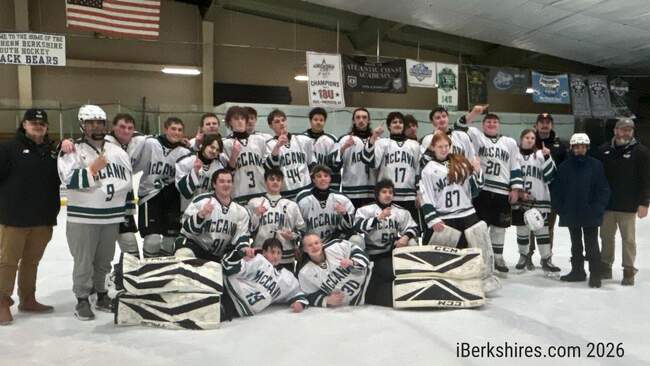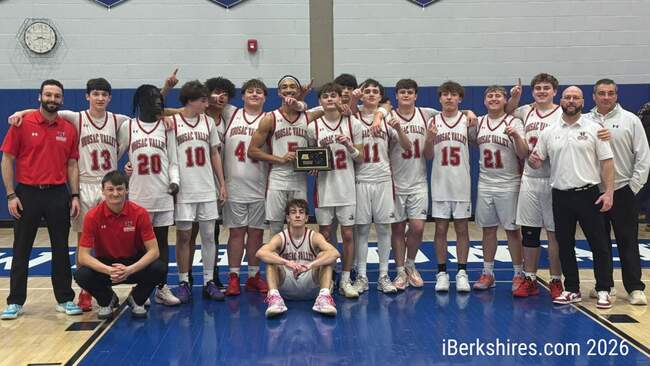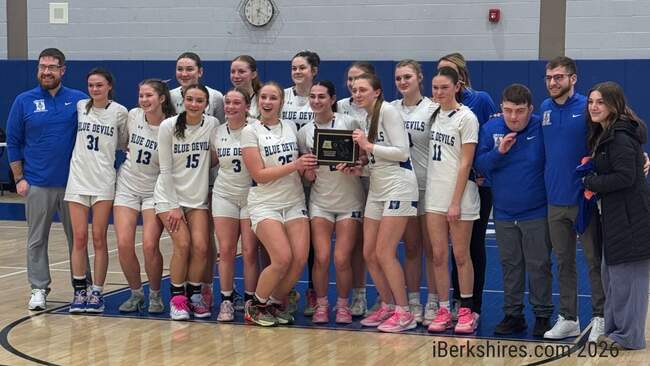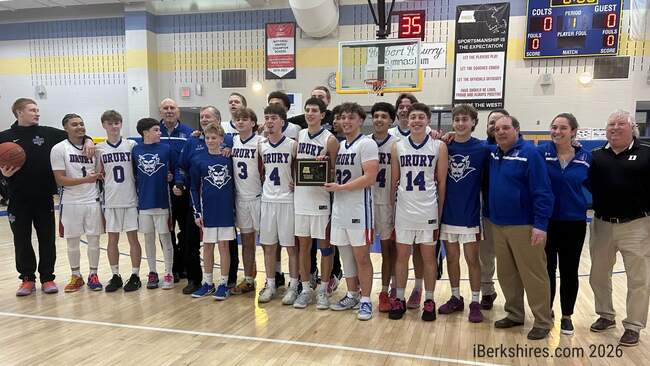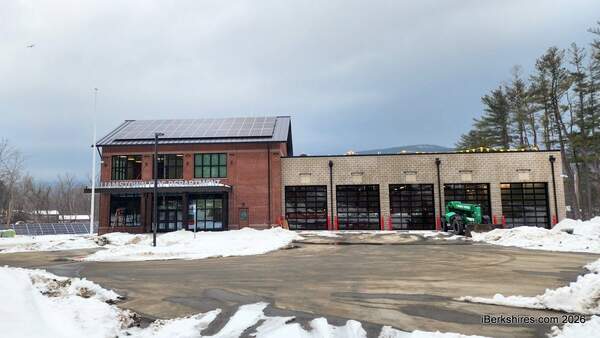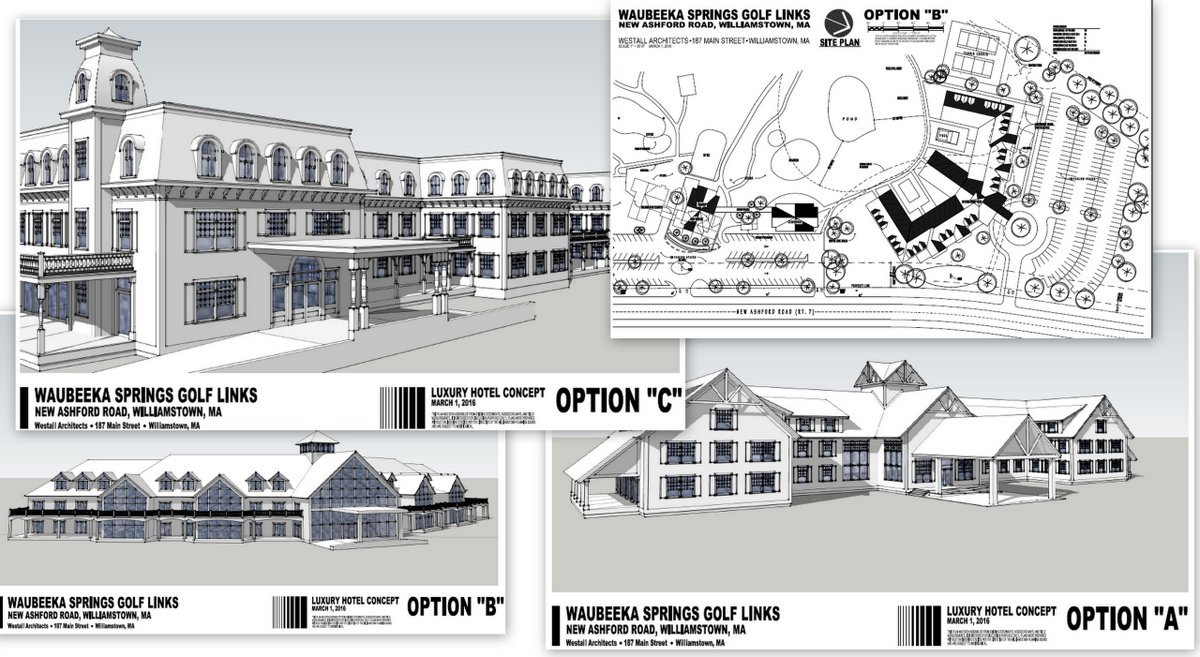
Waubeeka Owner Makes Final Pitch to Planning Board
WILLIAMSTOWN, Mass. — The owner of Waubeeka Golf Links is not giving up on the idea that the Planning Board will support a bylaw that would allow a hotel on the property.
Ahead of Tuesday's 7 p.m. public hearing at the elementary school on proposed zoning bylaw amendments, Deep sent the board members a 13-page letter to make his case one more time and inform the panel that he has commissioned the marketing study that three board members demanded as a condition before the panel would keep working on its own amendment.
The Planning Board on Jan. 26 voted 3-2 to stop working on its own bylaw amendment to create a Waubeeka overlay district for the South Williamstown parcel, which is part of the town's Rural Residence-2 district, where such a hotel is not permitted under any circumstances.
Deep then put the question on the May annual town meeting warrant by citizen's petition, using the bylaw language crafted by the board and Town Hall staff for five months before the January vote brought the process to a halt.
The bylaw as written would allow a hotel by special permit of the Zoning Board of Appeals and require that 85 percent of the Waubeeka property remain open space.
At that January meeting, the majority of the Planning Board felt that Deep needed to bring more information to the panel before it could consider the idea any further. The board asked him to provide a marketing study, a schematic design for a possible hotel and the name of the partners he might bring in on the project.
This week, he provided the board with three possible schematic designs showing how a hotel might be situated on the property and he said he had a market analysis from Tennessee-based STR, a globally known provider of research to the hotel industry.
Previously, Deep had argued that it was premature to pay for a market analysis, but on Friday he said his belief in the project compelled him to take the risk.
"The reason I did it was I want to give them every opportunity to vote yes," Deep said. "Maybe one of those three will say, 'He's really trying, he's sincere, he's given us what we want. I'm not going to be the deciding vote that knocks this down.
"If one of them says that, I think all three will say that."
Deep's letter tells the board that he has spent more than $25,000 on the project.
He said STR's contract prohibits him from making multiple copies of the market analysis (or distributing it publicly), but he invited individual Planning Board members to sit down with him and review the report.
His letter does reference the report's conclusions.
"STR Analytics refers to our current period of time as the Goldilocks era," Deep wrote. "The economy is growing, unemployment is low, interest rates are low, inflation is in check, and the county occupancy rate is projected to rise above 65 percent and could climb as high as 72 percent, on an annual basis. The time is now for hospitality venue expansion!
"The results from the Smith Travel Report show that in July and August of 2015 the average daily rate from the seven local high end hotels that were included in the study was $241 in July and August and only $138 in April, which means that in prime summer months when demand is high, a typical room can command a 57 percent higher rate. The occupancy rate averaged 72 percent in July and August, but dipped to 35 percent in March. This reinforces the key market factor for Waubeeka: if there is strong demand for high end accommodations, the market supports this kind of development. By offering such integrated recreations, golf, meeting, and hospitality services year round, Waubeeka will attract higher end visitors year round."
Deep did not provide the name of a potential developer/partner, though he said he has had preliminary conversations with several businesses who might be interested. His letter continues to maintain it is premature to finalize that detail.
"I do not foresee any developer expressing a willingness to invest in soft costs, feasibility studies, engineering studies, water and sewer tests, design work etc. without the land being properly zoned to actually permit the building of a country inn/resort," he wrote.
"Right now it is beyond imagination that any developer would invest upwards of $200,000 in studies, plans and calculations — not to mention the opportunity cost of their valuable time — unless there was a realistic chance of an actual development being approved."
Deep invited each of the Planning Board members to meet with him in person to discuss the proposal and go over the market analysis from STR.
The Waubeeka overlay district is one of six zoning bylaw amendments on the annual town meeting warrant. The other five were drafted by the Planning Board. Two are intended to make it easier for residents to operate small businesses in residential neighborhoods. One would expand the Village Business District to include a large parcel at the south end of Spring Street where Williams College hopes to build its replacement for the Williams Inn.
Deep's proposal, which had the support of two members of the Planning Board, including its chairwoman, was first brought to the panel because Deep wants to make the Waubeeka Golf Links economically viable.
His attorney, Stanley Parese, has mentioned to the board a couple of times that if the golf course — which is losing money — goes out of business, the entire property could be subdivided for residential development by right.
Deep has repeatedly told the board the he does not want to see that happen, a notion he reiterated on Friday.
"If [the overlay district] passes at town meeting, I will not be the person to close that golf course," he said. "If they just give me the chance, I won't be the one to close it. I don't care how much money I've got to spend."
Tags: golf course, motels, hotels, Planning Board, waubeeka,

